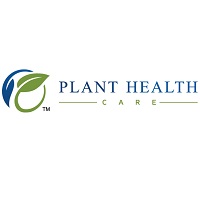Plant Health Care plc (LON: PHC), a leading provider of novel patent-protected biological products to global agriculture markets, announced today its unaudited interim results for the six months ended 30th June 2019.
Financial Highlights
- Revenue for the six months ended 30 June 2019 was $2.7 million (2018: $3.0 million); a first-half order of $0.5 million for Brazil fell into July due to import licence delays.
- Cash outflows decreased 35% to $2.9 million (2018: $4.4 million).
- Adjusted LBITDA* improved to $4.2 million (2018: $5.6 million).
- The Company had cash reserves of $1.4 million as at 30 June 2019.
Operational Highlights
- Sales orders were up 10% at $3.3 million (2018: $3.0 million), despite challenging market conditions.
- Excluding Brazil, sales were up 4% at $2.7 million (2018: $2.6 million).
- Harpin 𝜶β is delivering exceptional results in both Brazil sugar cane and US corn despite the difficult market environment.
- Trials with the Group’s PREtec peptides continue to show strong results, in Brazil soybeans and in a range of crops in the US and EU.
- The Group has made good progress towards preparing for direct sales of PREtec peptides, targeting markets worth more than $5 billion. Registration is progressing and production of PREtec peptides is now scaling up from laboratory to pilot scale.
Commercial Business
The success of Harpin 𝜶β has encouraged the Company to rebalance its resources to focus on accelerating the rate of profitable organic growth in the commercial business.
The Commercial business is forecast to be profitable and cash generative in 2019, with profitable growth continuing in future years. The Board is committed to achieving cash breakeven within existing resources and will take the necessary steps to achieve it.
PREtec
Trials with the Group’s first PREtec peptide (PHC279) as a seed treatment in Brazil soybeans, showed up to 45% improved control of Asian Soybean Rust (ASR) and up to 16% yield increase. These compelling results have attracted material interest from growers and distributors.
Projected production costs of PREtec peptides are lower than previously anticipated, and we have robust commercial formulations. The Company is now progressing through a well-established process to register and sell directly into major markets where the total value of opportunity is c$5 billion.
Following a review by the Board, the Company will rebalance its resources to prioritise profitable growth from the Commercial business. As a consequence, the resources applied to R&D, registration and launch of new products will be reset to achieve their goals within our financial means. The Company will continue to explore opportunities to fund the development of the PREtec peptides.
Board changes
As part of this review the Company is strengthening the Board with changes aimed at improving execution of the strategy; Richard Webb will become Non-Executive Chairman, while Chris Richards will become CEO to focus on operational delivery, with effect from October 1st, 2019.
In parallel, Michael Higgins, Audit Committee Chair and Senior Independent Director, will stand down from the Board on September 30th. We are at an advanced stage of appointing a successor to Michael, with details to be announced in due course. Until then, interim arrangements include the appointment of Bill Lewis to serve as Interim Audit Committee Chair.
Dr Christopher Richards, Plant Health Care plc Executive Chairman and Interim CEO, commented:
“I am delighted with the progress Plant Health Care has made during the first half of 2019. The Group’s Commercial business is forecast to generate a material EBITDA in 2019, for the first time. The substantial benefits of Harpin 𝜶β to growers are now abundantly clear.
We are confident of achieving material revenue growth in 2019 despite macro-level market-driven challenges, although revenue will be slightly lower than previous expectations.
Finally, I would like to express my thanks to Michael Higgins for his outstanding work on the Plant Health Care Board over the past six years.”
*LBITDA: loss before interest, tax, depreciation, amortisation, shared-based payments and intercompany currency adjustments.
Chairman’s statement
Introduction
I am pleased to report the interim results for the six months ended 30 June 2019. The Commercial business has continued to make good progress, with sales orders up 10% in a very challenging market environment. We anticipate that the Commercial business will generate a material EBITDA in the full year 2019; the continued strong growth of Harpin 𝜶β sales will take the Group to cash positive in due course.
Harpin 𝜶β is gaining more users in Brazil sugar cane; we are targeting sugar mills which plant 3 million hectares of sugarcane. Restrictions on import licences are currently holding back sales and we are working to resolve those limitations. With very low sugar prices, the area of sugarcane has reduced to some 8.4 million hectares (previously 10 million hectares) and producers are seeking extended payment terms. Harpin 𝜶β, however, provides very substantial benefits in efficiency, which is encouraging increased use even in these conditions.
In the US, the launch into the 90 million acre corn market has been well received. Corn treated with Harpin 𝜶β at planting have emerged from the ground taller and more robust than untreated corn; we anticipate that this will boost yield at harvest in the coming weeks. US corn, however, has been hit very hard by the combination of low commodity prices and the worst weather in decades, which delayed planting. While this held back on ground sales, the area treated (approx. 350,000 acres) was an encouraging start. We are currently in discussion with our distributor on sales for Q4 2019.
The recent agreement with Wilbur Ellis for the distribution of Employ (Harpin 𝜶β) into specialty crops in the US is already leading to increased sales into those crops.
Distribution agreements with strong partners now give Harpin 𝜶β access to crops grown on more than 30 million hectares. We expect this to drive accelerated revenue growth over the coming years.
In New Technology, we were excited to report positive results with PHC279 as a seed treatment in Brazil soybeans. PHC279 significantly improved ASR control of foliar fungicide programmes, even in fields facing heavy disease pressure. Disease control was improved by up to 45% when PHC279 was applied as a seed treatment. In addition, yields of soybeans were increased by up to 16% when compared with foliar fungicide programmes alone. These results provide increasing support for the acceptance of PHC279 as a compelling tool to combat ASR.
Positive results continue to be generated in other crops, in the US and in Europe. Based on these results, the Group intends to commercialise PREtec peptides in markets worth more than $5 billion, starting with PHC279, an Innatus 3G peptide. The first launches are likely to be into corn and soybeans in the USA and in soybeans in Brazil for the control of ASR.
The Group has recently announced an agreement with Penn State University, which will scale up production of PHC279 from our laboratory scale methods to pilot scale. This is the next step towards full commercial production. PHC279 is progressing through the registration in the US and the Group intends to seek a fast track product registration in Brazil. Other PREtec peptides will follow.
Commercial Products
Our Commercial business markets our proprietary products worldwide through distributors and also distributes complementary third-party products alongside our own products in Mexico. The Group has a portfolio of existing products, based on our proprietary Harpin 𝜶β and Myconate® technologies. Harpin-based products are now well established in certain markets. Over the last three years, the Group has extended distribution into large crops; we now have access to markets covering more than 30 million hectares, with strong, committed partners.
During the first half of 2019, overall product sales were $2.7 million (H1 2018: $3.0 million). Orders were up 10% to $3.3m ($3.0m in 2018) but delays in achieving an import licence in Brazil pushed some sales into H2. The gross margin decreased to 57% compared to 60% over the same period in 2018, due to the increased proportion of third-party sales.
Sales in Mexico increased by 12% (12% in local currency). Despite headwinds caused by the possible tariffs imposed by the US government, Harpin 𝜶β sales increased by 28% with launches into the strawberry and chilies markets in northwest Mexico.
Sales in the Americas decreased 47%, mainly due to delays in the import of product into Brazil in the first half of 2019. These sales occurred in the beginning of the second half of 2019. The Group has a limited licence to import into Brazil and continues to work with Brazilian authorities to secure an unlimited licence which will allow for timely shipments of Harpin 𝜶β into Brazil. Harpin αβ was launched in Brazil in February 2018 for use on sugarcane, through Coplacana, a leading cooperative. Demonstration field trials conducted in 2016-2019 showed an average yield increase of over 21%. Subsequent to these trials, the Group has also initiated 56 trials with 15 sugar mills in São Paulo state representing 3.0 million hectares of sugarcane. First results from these trials are expected in late October.
The launch of Harpin 𝜶β as a seed treatment product for field corn in the US has been well received. Demonstration plots showed that corn treated with Harpin 𝜶β emerged from the ground taller and more robust than conventionally treated corn. This was especially visible when the crop was under stress, for example from excess soil moisture. Despite record rainfall and reduced planted corn acres due to flooding, we estimate that 350,000 acres were treated in 2019. Our distribution partner considers the launch to have been successful.
In June 2019, we signed an exclusive agreement with Wilbur Ellis, one of the largest US agricultural distributors, with sales of over $3 billion, for distribution of Employ to specialty crops. These crops are grown on some 7 million acres in the US; the agreement with Wilbur Ellis gives us materially increased access to these crops. We are already seeing increased orders resulting from this agreement.
Sales in Europe/Africa decreased by 18% (12% in constant currency). This was partially due to channel stock remaining high in the South African region. The Group is also experiencing a registration delay in Turkey, which delayed sales in the first half of 2019. We expect to obtain the registration in the second half of 2019, which will allow sales to occur in the fourth quarter of 2019. Sales in Spain increased 8% (15% in constant currency) through increased sales into the citrus and rice markets. We expect to further expand sales through our Spanish subsidiary into the citrus and grape markets in Peru and Chile.
Sales by the Group in any one period will be subject to a number of seasonal and market-related factors, as well as the terms of agreements with third parties and the timing of product registrations. As a result, the Group’s sales may not follow a strictly linear trend. Historically, Group sales have been heavily weighted towards the second half of the year.
New Technology
Plant Response Elicitor technology (PREtec)
Plant Health Care develops and commercialises novel peptides that work in a manner analogous to ‘vaccines’ for plants. When they come in contact with plants, these substances provoke the plants’ natural defence systems, and elicit a variety of useful responses for the farmer, such as improved growth and yield. A pipeline of these peptides is being evaluated by the Group and its partners in many crops around the world. For each of a number of targeted crops and uses, a lead peptide has been selected and is advancing towards commercialisation.
Product development
In support of product development, we continue to conduct a wide range of field trials in 2019. Promising results from this season that demonstrate improved disease and nematode control and yield in vegetables are now being reviewed. Later this year we will see results from the first field trials of a new liquid formulation for use as soybean and corn seed treatments, as well as data from a set of European disease control studies in wheat.
Asian Soybean Rust in Brazil
Brazil is the world’s largest exporter of soybeans, with some 36 million hectares planted in 2018. One of the challenges of producing soybeans in Brazil is Asian Soybean Rust (ASR), which can be a devastating disease. Growers spent $2.1 billion in 2017 on soybean fungicides in Brazil.
In independent trials, PHC279 applied as a seed treatment significantly improved ASR control of foliar fungicide programmes, even in fields facing heavy disease pressure. Disease control was improved by up to 45%. In addition, yields of soybeans were increased by up to 16% when compared with foliar fungicide programmes alone. These results demonstrate the value of PHC279 as a tool to combat ASR.
Given this second year of positive results, Plant Health Care intends to move forward to commercialise PHC279 in Brazil. The Company intends to seek a fast track product registration and is making plans to produce PHC279 at commercial scale.
Brazil sugarcane
This year for the first time the Group is evaluating PREtec in sugarcane to enhance yield and treat disease. Based on the success of its Harpin product in raising sugarcane yields, the Group is optimistic that PREtec will bring additional benefits to sugarcane growers on the more than eight million hectares under cultivation in Brazil and other areas where sugarcane is grown.
Corn and soybean seed treatment in the United States
Almost 90 million acres (36 million hectares) of corn were planted in USA in 2018, with a similar area of soybeans. In the USA, seed treatments are applied to more than 90% of the corn planted and over 80% of the soybeans. PREtec peptides have demonstrated yield benefits in this application over years of field trials. Large commercial seed treatment operations increasingly demand that products are provided as liquids. PHC has developed a stable, easy to handle liquid PREtec formulation that is currently in field trials.
Enhanced nutrient uptake
Proof of concept field studies are underway in corn and soybeans to explore the potential of using PREtec in conjunction with foliar micronutrients. The intention is to enhance plant nutrient uptake and improve yield, while reducing the micronutrient application rates. Assuming positive results and with the accelerated regulatory path available for this class of products in the US, the Group believes a commercial launch within two years is feasible.
Nematode Control in Row and Vegetable Crops
Recent field trial results support the continued development of PREtec for nematode control in vegetable crops, which are estimated to be grown on over seven million acres in the US In a head-to-head comparison, PREtec performed as well as a leading chemical nematicide to reduce crop damage caused by nematodes.
Seed Treatment for Corn/Soybean Drought Tolerance
In areas of South America, Asia and Africa, seed companies are looking for regional solutions to protect yield under both drought and non-drought conditions. PREtec has shown strong potential in maintaining corn yields in fields faced with persistent drought.
Moving to commercial sales
The Group is now committed to taking PREtec peptides directly to market through distribution partners. The first target markets are in the US and Brazil. They are worth more than $5 billion in total. PHC279, an Innatus 3G peptide, will be the first product to be launched. The timing of product launches will depend on achieving product registrations and signing up committed distributors. We are progressing with plans to register PHC279, followed by other products, in the US and Brazil. Discussions are in hand with distributors, who have expressed interest; some distributor field trials are already in progress. In parallel, we continue to pursue options for licensing PREtec peptides to larger companies.
In the first half of 2019, three of our evaluation partners expanded their PREtec testing programmes in a variety of row and vegetable crops in the US and abroad. These partners are evaluating a variety of product concepts, including improved disease control, drought tolerance, yield, nematode control, and others. Other partners have continued their programs started in 2018. Positive results with multiple PREtec peptides in soybeans in South America have been reported and we are actively exploring next steps for an expanded collaboration in 2020. At the end of the 2019 growing season we will receive additional results from partners’ field trials in Europe and the Americas, including in corn, soy, sugar beets and vegetables. We are optimistic that these results can lead to opportunities for commercial distribution of PREtec. In addition, discussions are ongoing with new partners to initiate similar collaborative programmes next year.
Manufacturing
The Group has developed low cost production methods for PREtec peptides at laboratory scale in our own facilities in Seattle, based on fermentation. The next stage in moving to commercial production is to establish a pilot plant, which will scale up those methods in larger vessels. The pilot plant will refine the Group’s production methods, which will then be used in the manufacture of peptides for commercial sales.
The Group has signed an agreement with the CSL Behring Fermentation Facility at Penn State University to establish pilot production of PHC279. The University is providing excellent facilities for optimising production methods, focusing initially on PHC279, including production of initial commercial quantities. We anticipate this project will take less than 12 months, after which the Group expects to contract full scale manufacture with a commercial manufacturer.
Summary of financial results
Financial highlights for the six months ended 30 June 2019, with comparatives for the six months ended 30 June 2018, are set out below:
| 2019 | 2018 | |
| $’000 | $’000 | |
| Revenue | ||
| 2,684 | 3,011 | |
| Gross profit | 1,526 | 1,806 |
| Research and development | -1,423 | -2,442 |
| Sales and marketing * | -1,636 | -2,138 |
| Administrative | -1,430 | -2,271 |
| Total operating expenses | -4,489 | -6,851 |
| Operating loss | -2,963 | -5,045 |
| Net finance income | 142 | 31 |
| Net loss for period | -2,821 | -5,014 |
- – The 2018 amount includes $258,000 of Business Development costs. Starting in 2019, Business Development costs are included in the Sales and Marketing expense category.
Revenue
Revenues for the six-month period ended 30 June 2019 were $2.7 million (H1 2018: $3.0 million) producing a gross profit of $1.5 million (H1 2018: $1.8 million) and the loss before tax was $2.8 million (H1 2017: $5.0 million). The gross profit margin was 57% (H1 2018: 60%). Revenues and gross margin were lower than the prior year due to delays in the importation of product into Brazil in the first half of 2019. These sales slipped into the beginning of the second half of 2019.
Operating expenses
Operating expenses decreased by $2.4 million for the six-month period to $4.5 million.
LBITDA decreased $1.4 million to $4.2 million (H1 2018: $5.6 million) primarily due to decreased Research and Development and Sales and Marketing costs as part of an ongoing cost reduction programme implemented at the beginning of 2019. The majority of the savings were achieved through lower personnel ($0.8 million) and consulting ($0.7 million) costs.
Cash position and liquidity
As of 30 June 2019, the Group had cash and investments of $1.4 million. Cash and costs continue to be tightly controlled.
During H1 2019, cash outflows decreased 35% to $2.9 million (H1 2018: $4.4 million). The decrease was due to a working capital initiative and expense reductions as part of an ongoing Group wide cost reduction programme. Expenses decreased in Research and Development ($1.0 million) and Sales and Marketing ($0.5 million) through reduced personnel and consulting costs.
Net cash outflow from operating activities decreased $2.0 million to $2.8 million (H1 2018: $4.8 million). Included in the cash used in operations is an increase in the Group’s inventory balance offset by lower accounts receivable and accounts payable balances. Adjusted LBITDA decreased $1.4 million to $4.2 million (H1 2018: $5.6 million)
In February 2018, the Group successfully completed an equity raise of $6.7 million (net of costs) to help fund operations.
Current trading and outlook
The Board remains confident about the prospects for building a growing, profitable Commercial business, as sales of Harpin 𝜶β continue to increase. We anticipate a strong second half of 2019. We are confident of achieving material revenue growth in 2019 despite macro-level market-driven challenges, although revenue will be slightly lower than previous expectations.
Preparations for the first launches of PHC279 are progressing to plan, with further PREtec peptides following. The medium term prospects for PREtec peptides, in markets worth more than $5 billion, are very exciting.
The Board has reviewed the Company’s cash position and concluded that we are able to achieve cash breakeven within existing cash resources. The Board will take whatever steps are necessary, including by reducing cash expenses, to achieve that.
Dr. Christopher Richards
Chairman
30 September 2019









































